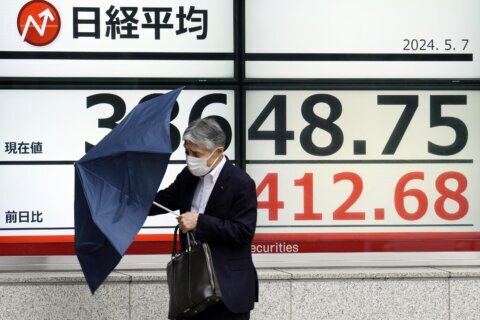BELGRADE, Serbia (AP) — Belgrade on Thursday pledged never to impose sanctions on Russia, despite calls from the European Union that Serbia must align its foreign policies with the 27-nation bloc’s if it wants to become a member.
Serbian parliament speaker Ivica Dacic said Russia is Serbia’s best ally and protects its “territorial integrity” — referring to Moscow’s support for Belgrade’s refusal to recognize the independence of its former province of Kosovo, declared in 2008.
Speaking at a conference named “Russia in the Balkans, a look at the future,” Dacic said that “despite pressure,” Serbia will never introduce sanctions against its “friend Russia.”
“The relations between Serbia and Russia are of strategic importance,” Dacic said. “They are at the highest point remembered by our generations.”
Unlike neighboring Montenegro, North Macedonia and Albania, Serbia did not join Western sanctions against Russia following its annexation of Crimea from Ukraine or the arrest of the Russian opposition leader, Alexei Navalny.
Instead, Serbia — which is formally seeking EU membership — has been forging close ties with its traditional Slavic ally Russia, as well as with China, despite warnings from the West about the two powers’ alleged “malign” influence in the Balkan region that is still reeling from the wars in the 1990s.
Some in the West fear that Russia, which has been arming Serbia, could encourage authoritarian Serbian leader Aleksandar Vucic to destabilize the still volatile region.
Using the pro-Russian conference to voice the Serb nationalist platform that triggered the bloody conflict in the 1990s, Serbian Interior Minister Aleksandar Vulin said that Serbs “have the right to be united, to live together.”
“It is not our desire to live together in a foreign land (the EU), but … to live together in our land which we organize,” Vulin, a staunch Kremlin supporter, said.
The Serb nationalist goal of wanting to create “Greater Serbia” by forcefully redrawing the internal borders of the former Yugoslav federation led to the bloodiest conflict in Europe since World War II.
Copyright © 2024 The Associated Press. All rights reserved. This material may not be published, broadcast, written or redistributed.







